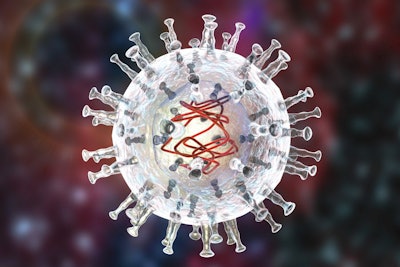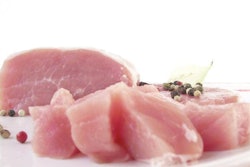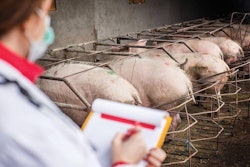
National Pork Producers Council also lobbying Congress for additional COVID-19 relief
The National Pork Producers Council (NPPC) is urging Congress to fully fund programs that aim to keep foreign animal diseases (FAD) from entering the country, as well as seeking additional relief for losses suffered by pork producers as a result of the novel coronavirus (COVID-19) pandemic.
During a media call on September 17, NPPC President Howard “A.V.” Roth pointed to Germany, which recently reported its first case of African swine fever (ASF). Since the announcement, four countries have banned pork imports from Germany.
“After just one case, the repercussions have been swift and significant, with German pork exports suspended to a number of its biggest markets, including China, South Korea, Japan and the Philippines,” he said. “Last week’s news is an ever-present reminder that the United States needs to remain vigilant to protect our borders and our ports from ASF and other foreign animal diseases.”
U.S. Bureau of Customs and Border Protection agriculture inspections at U.S. ports of entry are funded by Agricultural Quarantine Inspection (AQI) program user fees. Due to the COVID-related economic downturn and significant reductions in travel, collection of these user fees has fallen, NPPC said.
“Unfortunately, a significant lapse in inspection funding is putting our country in a very precarious position that, if left unaddressed, will have serious consequences, not just for livestock producers, but for all of U.S. agriculture,” Roth said. “These agriculture inspectors are our first line of defense to ensure our nation’s US$1 trillion agriculture sector is safe. It would be unthinkable to let our guard down, leaving U.S. agriculture at risk.”
While the U.S. has been fortunate to remain free from ASF, Nick Giordano, NPPC vice president and counsel, global government affairs, said work needs to continue to maintain that status.
“African swine fever is spreading very quickly in the world,” he said. “Thank goodness it’s not here; we’ve got to keep it out and we need border protection, not just for ASF and not just for foreign animal diseases that affect livestock, but for all U.S. agriculture. It’s a huge priority for farmers and ranchers regardless of where they are in the United States.”
In addition to funding for prevention of FADs, NPPC continues to seek an additional COVID-19-related assistance package that would provide compensation for euthanized and donated hogs; additional funding for animal health surveillance and laboratories; modification of the Commodity Credit Corporation charter so a pandemic-driven national emergency qualifies for funding; additional funds for direct payments to producers without restriction; and extension of the Paycheck Protection Program with modifications to make it accessible to more producers.
View our continuing coverage of the African swine fever outbreak.


















